
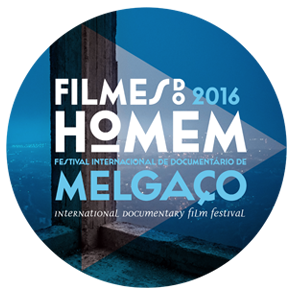
Participants
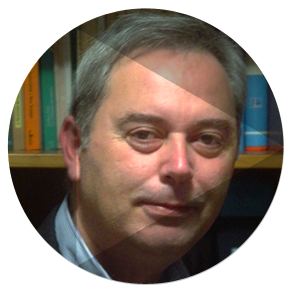
Albertino Gonçalves
Albertino has a master’s degree in Sociology from the University of Paris V-Sorbonne (1981) and a doctorate in Sociology from Universidade do Minho (1994), where he aggregated in the Sociology disciplinary group (2005). He has been teaching, since 1982, subjects in the field of social sciences methodology and cultural sociology, lifestyle and the arts. Coordinator of the post-graduation courses at Institute of Social Sciences, a member of the founding committee of Casa Museu of Monção and researcher at the Studies Center Communication and Society.
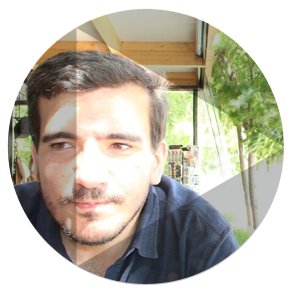
Alexandre Marinho
(Meaux, 1983) is a cinephile and amateur director. He's a PhD student in Literary Studies (theory).
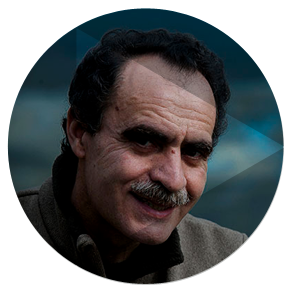
Álvaro Domingues
Álvaro António Gomes Domingues (Melgaço, 1959) is a geographer, PhD in Human Geography and associate professor at the Faculty of Architecture of the University of Porto. Teaching activity: Teacher of the integrated master's and doctoral program in Architecture and PhD Course at FAUP; Member of the Scientific Council at FAUP; Professor of the Master’s degree "Project of the Urban Environment" (FAUP/FEUP); Teacher of PhD Course of Architecture of the University of Coimbra.; Professor of the Summer Courses at the Serralves Foundation; Visiting professor at the Federal University of Rio de Janeiro; Visiting Professor at the University of Granada. Regularly collaborates with other universities, foundations, Público newspaper, cultural and professional associations, whilst developing a regular activity as a lecturer. Research fields: Urban Geography, Urban Planning, Landscape, Territory, Cultural Policy. His recent books include: Vida no Campo (ed. Dafne, Porto, 2012), A Rua da Estrada (ed.Dafne, Porto, 2010) and Políticas Urbanas II (Calouste Gulbenkian Foundation, Lisbon, 2012 with Nuno Portas and João Cabral)
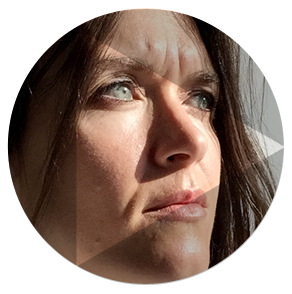
Andreia Alves de Oliveira
Is a photographic artist and a researcher in photography based in London. Andreia holds a PhD (2015) and an MA (2009) in photography from the University of Westminster in London and was selected for the Calouste Gulbenkian Foundation’s Creativity and Artistic Creation Programme (2008). Before pursuing photography full time, Andreia studied law and worked as a lawyer. Her practice and research explore subjects related to contemporary life in so-called Western, service-based society, employing photography and writing to investigate what makes life here and now what it is, while questioning the mechanisms and power relations implicit in the process of representation. www.andreiaoliveira.net
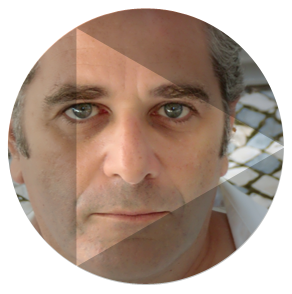
António Borges Correia
Born in 1966. After a brief period on Radio and the Press, starts his studies on Cinema at the Theater and Cinema Superior School in 1989, choosing the filmmaking area. In 1992 he works as the second Director ́s Assistant on the film of Manoel de Oliveira “A Caixa" and concludes one of the final exercises of his course. In 1998 he gets a subsidy from ICA for his first short film “Flying Away” (Golpe de Asa) which gets to Locarno, Clermont-Ferrand and Vila do Conde. He continues on short films for a long period until he finally centers on a very personal and deep concept of doing documentaries to the point of letting himself be invaded by fiction. Then comes “Endgame” (O Lar) thought 20 years before and concluded in 2007. Its premiere is in Paris, at Pompidou Centre
(Cinéma du Réel) and it goes to some international cinema festivals. After that, a project on war veterans is carried out and in 2010 he produces and directs “Delivery” (Parto) with characters performing their own roles and where he risks to the limit the fusion between documentary and fiction (Premiere at DocLisboa and it is chosen to the BAFICI in Buenos Aires and for the CineB in Chile). He continues to explore this manner during the following year with “Sign” (Gesto), a film about a young deaf, who aims to be a film director.
Awarded in IndieLisboa 2015, André’s Eyes (Os Olhos de André) closes a cycle that began in 2007. This film still travelling by festivals: Quebec, Gijón, Hong Kong
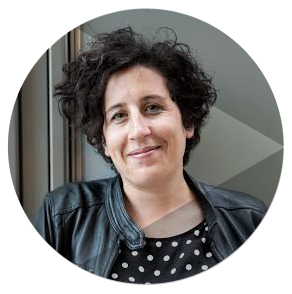
Beli Martinez
Beli Martínez (A Guarda, 1980). Producer of feature-length films like Arraianos (2012), by Eloy Enciso, premiered in Locarno and programmed in more than thirty international festivals. In 2011, produces Vikingland, by Xurxo Chirro, one of the most representative works of the New Galician Cinema, premiered at the prestigious FID Marseille and chosen as one of the best films of the year by critics and specialized press like Cahiers du Cinéma, and obtained recognition from the jury at the festivals Play-Doc, Lima Independiente and Márgenes. She’s been working, since 2012, with the same director in Project Socheo, an audiovisual archive of A Guarda. In 2013 she produces the second feature-length film by Xurxo Chirro, Une histoire seule, present in numerous international festivals such as Mar del Plata IFF, Cinema D’Autor or Lima Independiente, and also as part of the A Collective Impulse cycle curated by the critic Carlos Losilla. In November 2014 she unveils her latest production Jet Lag, by Eloy Domínguez Serén at the European Cinema Festival in Seville and participated in other festivals such as FID Marseille or First Look at the New York MOMI. Has a doctorate in Audiovisual Communication and reconciles production with teaching in the Department of Audiovisual Communication and Advertising at the University of Vigo and IES Audiovisual of Vigo. Nowadays she’s involved in the preparations for the feature-length film Long Night directed by Eloy Enciso.
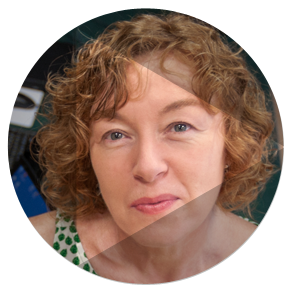
Carmen Suarez Nieto
Carmen has a degree in BA in Psychology from the University of Oviedo. She is a teacher and the driving force behind the Telecentros Network in Asturias. Responsible for the initiation, design and coordination of Streamlining Information Network of the Galician Town Hall (2007-2010), where several innovative projects took place, like "Memoria de Muller", "Memoria dos oficios", "E-signovisual" or "Maiores com iniciativa" among others. Currently employed as an agent of the CEMIT Network in the municipality of San Sadurniño, where she’s been developing the collaborative project “Tell me about San Sadurniño”.
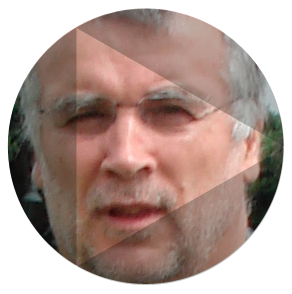
Casimiro Pinto
Is currently a teacher at Garcia de Orta Group of Schools and also a tutor in distance education at the Portuguese Open University. He is an investigator at the Center of Migration and Intercultural Relations (CEMRI) in Media and Cultural Mediations group. His research interests are video games, media, local culture. He has organized and conducted courses and teacher training actions, as well as coordinated training plans. He has participated in a documentary about video games produced by RTP, published several articles and chapters in specialized books and magazines addressing issues of their investigations.
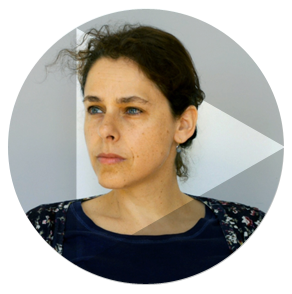
Catarina Mourão
Studied music, law and cinema (MA Brisol University), was a founding member in 1998 of Apordoc, association for documentary film-making, and started teaching cinema and documentary in 2000. In the same year, alongside director Catarina Alves Costa, we founded ‘A Laranja Azul’ in Lisbon, an independent production company of documentaries and visual arts.
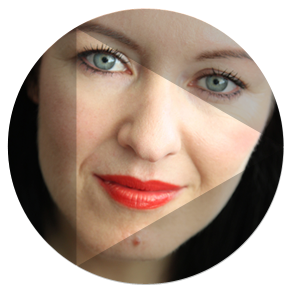
Daz Chandler
Daz Chandler is an Australian-born filmmaker and video artist with a background in broadcast journalism and presenting for television and radio. Her work has been screened at international film festivals throughout Europe, the United States and Australia and shown in galleries in Australia, United States, Palestinian territories and Turkey. Daz’s main interest lies in material that challenges preconceived sociocultural and political notions and ideas and creates instances of social engagement, or points of connection between unlikely parties. She also enjoys developing projects that indulge her dark sense of humor and flirt with the surreal and unexpected. She currently lives in Sydney with a cheese-loving hound called "Ellroy".
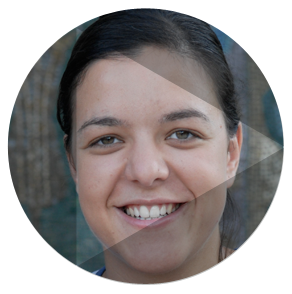
Diana Gonçalves
Diana was born in Tui in 1986. Graduate in Audiovisual Communication from the University of Vigo (2008). Master’s degree in Communication and Creative Industries at the University of Santiago de
Compostela (2013).
In 2009 she produces and performs her first documentary "Mulheres da Raia" which has received several awards in various national and international festivals. Later, she worked as a director at the production company Audiovisual Portico. In the field of production she works for the Galician Agency for Cultural Industries (AGADIC) in the organization of several meetings for the CREATIVE program, promoting multidisciplinary cultural exchange between Spain and Portugal.
Diana works at Cinemar Films, a film and sound post-production studio present in international markets. In 2010, she coordinated the documentary retrospective Carlos Velo: Olhar ao Marge, as a programmer of FILMINHO (Galician and Portuguese Film Festival). At the same time, she promoted and developed a number of itinerant workshops in several schools in Galicia and northern Portugal. Between 2009 and 2013, she was a member of documentary lab "O Retrato
Filmado" directed by Marta Andreu. She’s currently working on the post-production of "Palmira", the result of five portraits developed in the years of laboratory and as a communication and marketing professional in the business world.
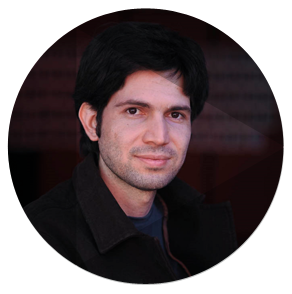
Iman Behrouzi
Iman Behrouzi was born in Shiraz, Iran, in 1984. He studied filmmaking at Tehran University in Iran. Now he's currently studying Media Culture (PhD) at the University of Cologne in Germany. He directed and edited some documentaries and short fiction films. His films were shown throughout the world.
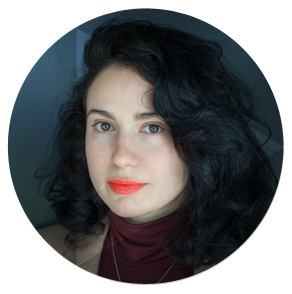
Iris Zaki
After several years in the Israeli media industry, Iris moved to London in 2009 to study documentary filmmaking, and made her debut short film My Kosher Shifts. In 2013 she commenced a practice-based PhD in documentary practice which explores her innovative filmmaking technique, focusing on closed-communities. She is now working on her next film while teaching documentary at Royal Holloway, University of London.
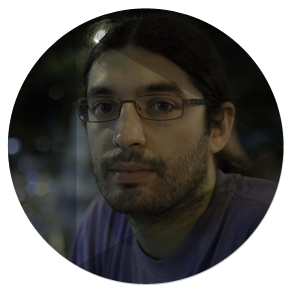
Javier Sanz
Javier Sanz (Zaragoza, Spain, 03/07/1983) moved to Barcelona to study film direction at the Escac. Along with his fellow classmates he co-directed a feature film, “Puzzle Love”, which participated in the San Sebastian international film festival and has been premiered in Russia an Brazil, as well as broadcast by Canal + Spain. He is a teacher in script writing and an advertising director for fashion brands mainly.
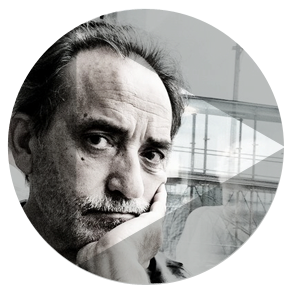
João Lafuente
João José do Coito Lafuente, graduated in Applied Mathematics from the University of Porto and has held the position of computer technician at Caixa Geral dos Depósitos bank. He has dedicated himself to photography since adolescence and had some of his works published in books and magazines. Has participated in group exhibitions and held solo and co-authored exhibitions with Manuela Matos Monteiro. Among the various exhibits produced, highlights include "Carnival in Venice", "The Harvest", "The Light of the Crystal", "Istanbul – Melancholic Itineraries", "Tropicana / Matanzas", "South of Dakar", "Istanbul and Lisbon – Melancholic Itineraries". Among other interventions it stands out the work, also co-authored, on the Douro: official photograph of the 250th anniversary of the demarcated region, exhibition on the region in Parliament ("The Douro in the Tagus" with Siza Vieira, José Rodrigues and Gracinda Candeias) in the European Parliament/Brussels, Paris, Bordeaux, Maputo and Beira (Mozambique) and in various different areas of the Douro and Porto. Co Manager of MIRA and MIRA FORUM galleries in Campanhã, Porto since October 2013, with Manuela Matos Monteiro.
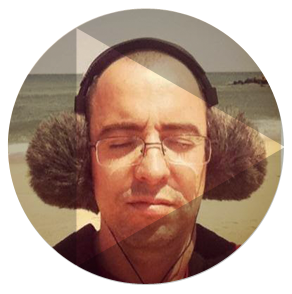
João Martins
João Martins (1977) is a musician and soundman. He has been an active figure in improvised and experimental music since 1996, with a vast array of national and international collaborations. Cooperates with the theatre company Visões Úteis (Porto) since 1998 where, in addition to working in soundtracks composition and sound design for theater plays, he also developed other performance formats in the landscape. Collaborator with a number of educational services from noted cultural institutions. Has developed, whilst working with local communities, audiowalks and audio installations where he explores the relationships between territory, collective memory and individual biographies. Attended the Music Conservatory in Aveiro, the Faculty of Architecture at Porto University and the Open University, where he completed his degree in Artistic Studies. He´s a teacher at Escola Superior de Música and Artes do Espectáculo (ESMAE-IPP) and Academia Contemporânea do Espectáculo (ACE).
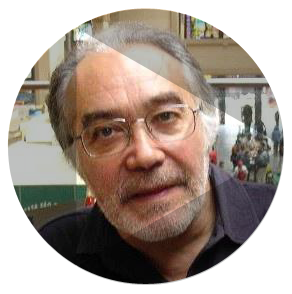
José Da Silva Ribeiro
José has a doctorate in Social Sciences – Anthropology and completed higher Studies in Film and Video at the Arts School of Porto. He’s a Professor at the School of Visual Arts, University of Goiás and a Researcher at the Migration Studies Center and Intercultural Relations from the Open University, where he is responsible for the Media Research Group and Cultural Mediations. He’s conducted field work in Cape Verde and in the urban peripheries of Lisbon and Porto, Brazil, Cuba and Argentina. Co Organizer of the Viana do Castelo International Film Conference, the International Seminar Images of Culture/Culture of Images. Coordinator of the Images of Culture/Culture of Images network. Collaborator with DIVERSITAS-USP. Visiting professor at European universities and Latin America.
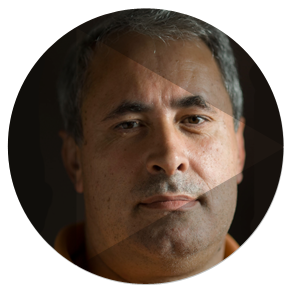
José Costa Barbosa
José Carlos Barbosa graduated in Photography, Cinema, Video and Multimedia Communication and a master’s degree in Cinematography Studies. Coordinator of the online video section at Lisbon City Hall. He currently teaches Photography at Lusófona University. José has been a photographer for over 30 years with numerous works in documentary photography.

Liliana Sabina Lasprilla
Liliana Sabina Lasprilla (Venezuela, 1987). In 2009 she started her career in the production of fiction film projects, at ECAM - Cinema School of Madrid, where she produced her first short films.
Then, in the following years, between Spain and Portugal, she participated in several feature films, from major American productions to projects with no resources, and also through the organization of film festivals.
At the end of 2012, Liliana also started her path through the production of documentaries projects like "Tanger Gool," by Juan Gautier, shot between Spain and Morocco and "Verbenas" by Ana Rodrigues, selected at Bafici Film Festival (AR) and Documenta Madrid (ES), among others. Back in Portugal, she continued to work in the production of documentaries, area in which she fell in love.
She is currently a member of EDN - European Documentary Network and the producer of Pixbee since 2014, where she is responsible for the networking and the development of film projects. So far she produced the documentary "Brothers" and "Special - an ocean away from home," this latest project in the current phase of post-production.
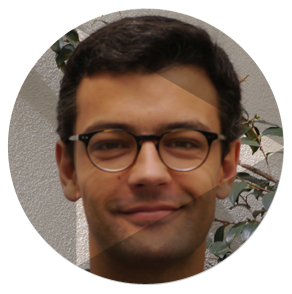
Lucas Manarte
Lucas Manarte was born in Lisbon in 1980. He studied harp at the National Music Conservatory. Completed a three-year Moving Image course at ar.co (Art and Visual Communication Centre, Lisbon).
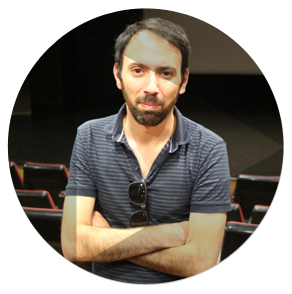
Luís Azevedo
(Vila do Conde, 1980) has a degree in Portuguese Studies. Film critic for some online media and has worked for more than ten years at film festivals.
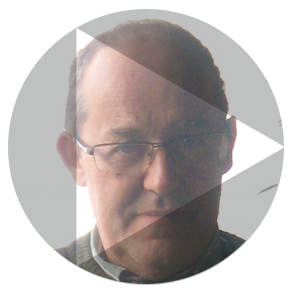
Manuel González Álvarez
Manuel has a degree in Sociology from Complutense University, Madrid 1977. He’s worked as a television producer and director of short films and various programs for TVG during the 80’s. Participated in the investigation and cataloging of the audiovisual memory of Galician emigration. Among other titles, he’s published: “Documentos para la Historia do cine en Galicia” (1970-1990). Creator and director of School of Image and Sound in La Coruña (1990-1998) and the Galician Audiovisual Agency from the Council of Culture and Sports at Xunta de Galicia (2005-2009). He has spurred new projects such as Cinemas Dixitais, Flocos TV (Mestre Mateo Award 2009) or Memory of the 20th century. Teacher at the Master’s degree in audiovisual production and management at Coruña University and La Voz de Galicia newspaper (1998-2015). Participation in numerous events, festivals and audiovisual showings, as well as conferences and seminars in national and international forums. Honour Prize “Mestre Mateo” Award in 2013 “for his contribution to the development of the Galician audiovisual industry”. Currently working as a history teacher at IES Concepción Arenal in Ferrol, he also manages the "Cliphistoria" channel and collaborates as an advisor and creator of content at "tell me about San Sadurniño".
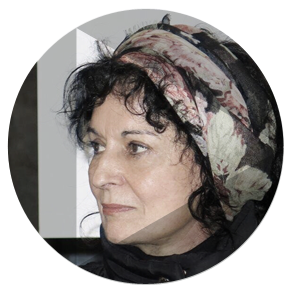
Manuela Matos Monteiro
Manuela Matos Monteiro has a background in Philosophy and Psychology and is the co-author of books on PsychoSociology, Psychology and author of books on Pedagogy and Design methodology among others (ed. Porto). Edited the magazine 2: POINTS for several years and coordinated the NetProf website. She’s had a keen interest in photography for many years, displaying her work in collective and individual exhibitions. Her art has been recognized through awards obtained in various photography contests, including 1st prize in the international competition "La femme et la vigne". Her work has been published in several books and magazines. Among the different interventions one can highlight the work co-authored with João Lafuente on the Douro. Since 2011, she’s been developing experiences with a Smartphone exploring the device capabilities for capturing and editing of photos. Had some of her work selected and exhibited in Los Angeles, Kansas City, Miami, Tokyo, Berlin, Florence, and Verona among others. Held two solo exhibitions: at the Montalegre Ecomuseum (2012) and the "Contemplation" exhibition at House Museum Abel Salazar (December 2014). One of her "Self(ie) evidence" got 1st prize in the self-portrait category at the MPA 2014 competition, the most prestigious award in mobile photography. Co Manager, with João Lafuente, of MIRA and MIRA FORUM galleries in Campanhã, Porto.
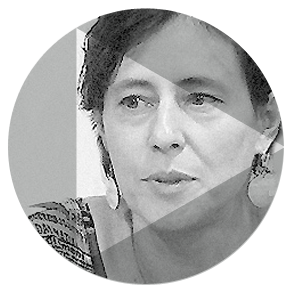
Manuela Penafria
Manuela Penafria is a professor of the undergraduate and master's degree courses in Cinema at UBI-University of Beira Interior. She has a PhD from UBI and is a researcher at Labcom. IFP (www.labcom.ubi.pt). Co-editor of DOC Online (www.doc.ubi.pt) and coordinating member of the WG "Filmmakers Theory", from AIM - Association of Researchers of the Moving Image.
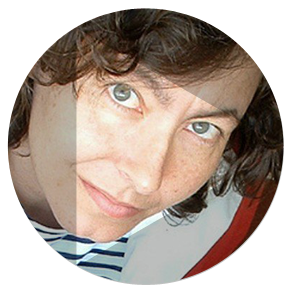
Margarida Cardoso
Margarida was born in Tomar, Portugal (1963) and lived in Mozambique until 1975. She studied Imaging and Audiovisual Communication at the António Arroio School in Lisbon. She worked for several years in France and Portugal as a photographer and assistant director and has developed work of a very personal nature between fiction and documentary since 1985. She was awarded the "Léopards of Demain" at the 52nd Festival of Locarno and her first feature-length film, "The Murmuring Coast”, premiered at the Venice Film Festival - Venice Days 2004. In recent years Margarida has established herself as one of the most consistent names in Portuguese cinema. "Natal71", "Kuxa Kanema – The Birth of Cinema", "The Murmuring Coast" and her latest film "Yvonne Kane" share in common an interest in colonial and post-colonial themes in a very unique perspective, exploring the memory and feelings of loss and guilt. In 2005 she received the Commendation of the Order of Infant Don Henrique. Assistant Director to Inês de Medeiros and Edgar Pêra. The Murmuring Coast (2004) became her best-known film. She is a teacher of Cinema, Video and Multimedia Communication at Lusófona University in Lisbon and a tutor at the Docnomads Master’s degree.
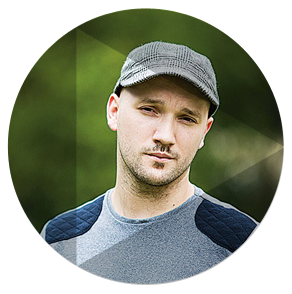
Márcio Laranjeira
Márcio Laranjeira studied cinema in Portugal and documentary film in Argentina. Since then he’s been exploring a personal approach to the documentary novel subgenre in the short-films he has directed. His films reveal generational and inter-relational conflicts, offering the point of view of those approached, by becoming actors in their own emotional frames.
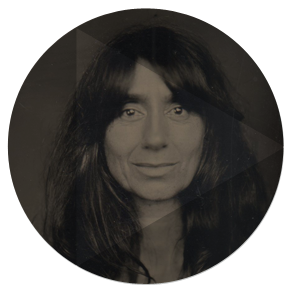
Olga Ramos
Olga Ramos (1967) graduated in Cinema at Escola Superior de Teatro e Cinema (ESTC) in Lisbon. In 1994 Olga was granted a scholarship from Calouste Gulbenkian Foundation included on the European Program “Visions: directing documentary” tutored by Michael Rabiger, in Berlin, Prague and Amsterdam. From 1992 till 2011, Olga directed and edited several film documentary projects, video art installations and modern dance videos. One of her latest documentaries entitled “Hardly one who lives close to the origin abandons its place” features the artist and sculptor Alberto Carneiro and was selected for Doclisboa film festival.
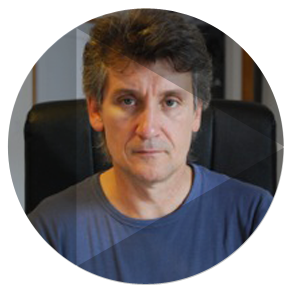
Patrick Séraudie
Patrick Séraudie was born in Brive-la-Gaillarde in 1960. He lives and works in the Limousin region. He made more than twenty documentaries within the Pyramide production company, which he founded in 1988 and ran until 2008. He also produced about sixty documentary films, including several first films. Participated at workshops Produire en Région from 1995 and Eurodoc in 1999. Was an alternate member of the CNC selective committee from 2005 to 2008, Member of the Documentaire commission in the Limousin region from 1998 to 2002 and member of Documentaire commission of the Midi - Pyrenees region from 2007. Since2008 his main focus has been on directing.
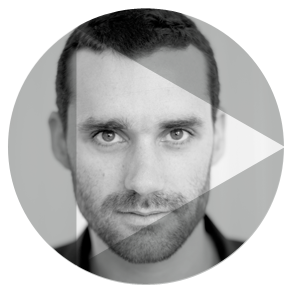
Pedro Macedo
Pedro Macedo was born in Lisbon in 1977. He began his academic career at Escola Profissional de Imagem. Graduated in Cinematography at Escola Superior de Teatro e Cinema. He was responsible for capturing the images in such shows as "No Sofá Vermelho" (SIC), "Sociedade de Belas Artes" (SIC Notícias) and "Pop Up" (RTP2). Directed the following television projects: "Laboratório" (SIC Notícias), "Tradições" (SIC Notícias), "Câmara Clara" (RTP 2) and "Entre Imagens" (RTP 2). Director of the documentary "Enxoval”, awarded at Festival Temp d’Images in 2013 with the prize for best Portuguese film about art. Founder of Framed Films in 2008. Pedro is currently active as a freelance director and director of photography.
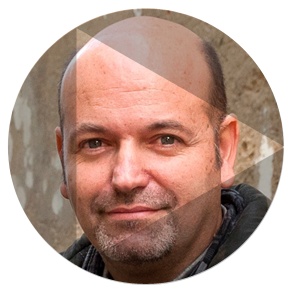
Pedro Sena Nunes
Pedro is a director, cultural programmer and teacher in the fields of artistic creation, documentary and experimental film, directed several films with the support of ICA / RTP - documentaries, fiction and advertising spots. Co-artistic director of Vo'Arte and co-founder of the Teatro Meridional Company, he is a consultant and coordinator of several cultural projects.
Integrated team member of European projects Fragile, Unlimited and European Video Dance Heritage (EVDH). Co-director of the International Festivals InShadow, InArte and InMotion - Cinema and Dance, and programmer of Olhares Frontais at Encontros de Viana Film Festival for 15 years, also collaborating with the Filmes do Homem Film Festival. His artistic project focuses increasingly in a practice with a social dimension through the intersection of people with special needs and professional artists.
He’s been intensely dedicated to the pedagogical field for the last 24 years, running laboratories dedicated to creation and experimentation, both documentary and fiction, teacher in the areas of filmmaking, transdisciplinary narratives and the relation of performance with technologies in ESTAL, IPA, AM and EscreverEscrever . Teacher at the Documentary Film Masters’ degree from ESMAE (Porto) for 8 years and teaching coordinator at ETIC for 18 years, where he was creative director, and now cooperates in the implementation of the new HND courses certified by the world's largest educational entity: Pearson.
Orchestrator and director of several projects in theatre, choreography and performance, he won numerous awards for his film, photographic and transdisciplinary work in Portugal and abroad.
Co-creator of the project Generation Soma, supported by the PARTIS Program - Social integration through artistic practices, from the Calouste Gulbenkian Foundation. He is currently a doctoral candidate at the University of Lisbon (UL) in performing arts and moving image, an investigator at GECAPA in the experimental areas of intersection between body and image, and he is filming his new documentary project.
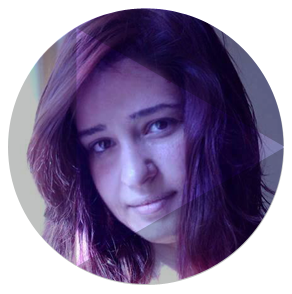
Rama Jarmakani
Rama Jarmakani (30) fled from Syria to Germany 2 years ago.
Back in Syria she worked for the BBC and Al-Jazeera. Now she is living in Berlin and works as a freelance journalist, among others for the online newspaper Bento, BBC (arabic) and supports the Berlin-producers, who are responsible for #MyEscape. She supports the company as translator and journalist for various projects about refugees and Syrian culture in Berlin.
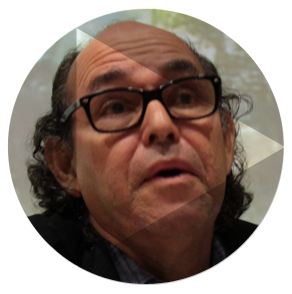
Renato Amram Athias
Renato Athias is the general coordinator of the Recife International Festival of Ethnographic Film. He holds a degree in Philosophy from Dom Bosco Faculty of Philosophy, Sciences ad Arts (1975), MA in Ethnology – Université de Paris X, (Nanterre, 1982) with a dissertation on the Notion of Ethnic Identity in Brazilian Anthropology. Holds a Doctorate in Ethnology by the same University (1995). He conducted studies in the fields of Media and Television at the University of Southampton (UK). Coordinator of the Center for Studies and Research on Race (NEPE), UFPE and is Assistant Professor of the Graduate Program in Anthropology at UFPE. Currently coordinates the Visual Anthropology Laboratory of the Image, Sound & Human Sciences at UFPE.
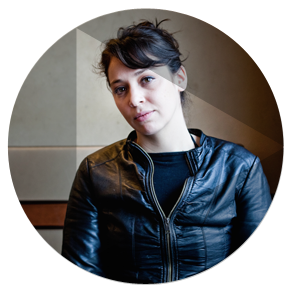
Sharon Ryba-Kahn
The French-Israeli director was born in Munich in 1983. Sharon spent her first 14 years in Munich, before moving to Jerusalem in 1997. She moved to Israel after her mother was appointed the Middle East correspondent of Focus magazine. In 2001 she graduated from the French lycée in Jerusalem then went to Paris to study acting. She continued her theatre studies in New York City at the New Actor’s workshop under the direction of Mike Nichols (The Graduate) and George Morrison—whose students over the years included Gene Hackman and Stanley Tucci. While living in New York, Sharon started directing plays. After working as an actress and as a director in various theatre productions, she decided to continue her education at the New York Film Academy, where she studied Film Production. In 2007 Sharon moved to Berlin and began freelancing in the film industry as an a.d., casting director and actress. In 2009 while continuing to work, she started her academic studies and graduated with a master’s degree in Visual Anthropology in 2013. Nothing has impacted her as much as her time in Jerusalem. For this reason “Hakara,” her directorial debut, could not speak of anything else but the lives of the people there.
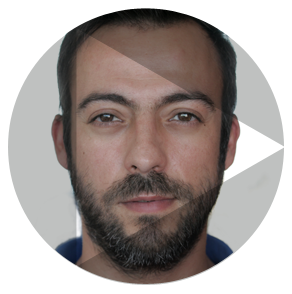
Sérgio Brás d'Almeida
Sergio Braz d'Almeida graduated in Cinema and Video at ESAP (Porto) and studied at FAMU (Czech Rep.) on a scholarship from FCFE; He studied Documentary film at the USC School of Cinematic Arts (Los Angeles) and attended the GULBENKIAN staging course and painting course at Ar.Co.
Director of two short films: "Plastic Hearts" and "Satellites", directed stage videos for the band
Humanos. He has mostly worked as a cinematographer for film and television.
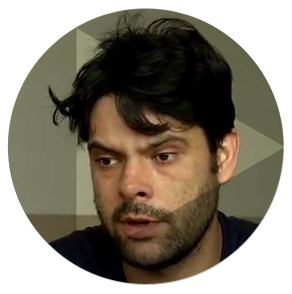
Tiago Afonso
Tiago graduated in Cine-Video at ESAP, trained at atéliers Varan workshops from the Creativities and Artistic Creation Gulbenkian Program, followed the Jean Rouch Seminar in "Anthropologie et Cinema" at the French Cinematheque and completed an MA in documentary filmmaking at ESMAE-IPP. His main activity is the realization of documentary-oriented cinema, having made films about intervention and political reflection, but also works of autobiographical and experimental nature. He´s also carried out several works of installation-video. Collaborator whilst working as a technician (cameraman, sound, editing) in other director’s films - Rodrigo Areias, Regina Guimarães, Ricardo Leite, Catarina Alves Costa, Saguenail, André Gil Mata, Paulo Abreu, Amarante Abramovici ... Teacher in the Audiovisual Communication and Multimedia BA’s Degree at Lusófona University in Porto, in addition to guiding intensive training in the fields of introduction to film language or direct-cinema (documentary). He also works frequently with theater companies. As a programmer, on top of several thematic cycles of cinema, collaborated with the 5th Panorama of Portuguese Documentary and integrates the programming team Taste of Cinema, at the Museum of Contemporary Art of Serralves.
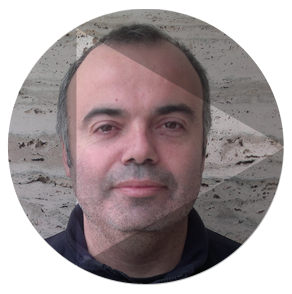
Xurxo Chirro
Xurxo Chirro (A Guarda, Spain, 1973) has a BA degree in Art History at the University Santiago de Compostela. He worked in the Axencia Audiovisual Galega and AGADIC, entities dependent on the Xunta de Galicia. He is a film critic and collaborates with several newspapers and magazines. He also works as a film script-writer and he is the director of the documentaries Vikingland (2011) and Une histoire seule (2013).